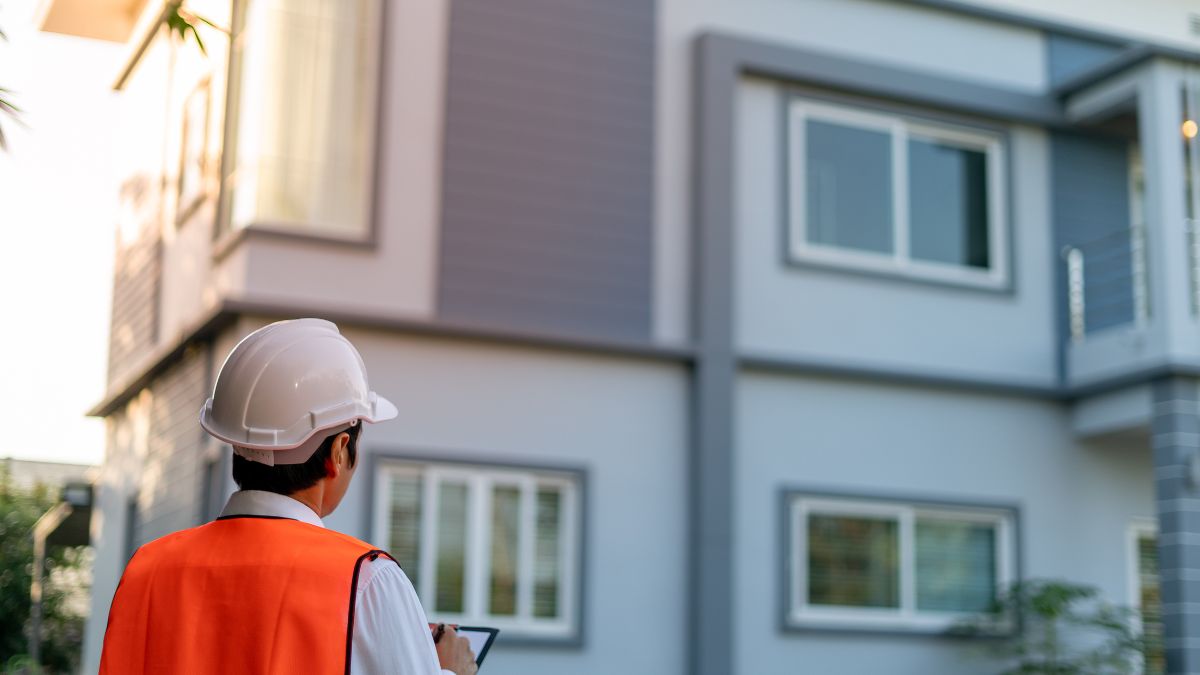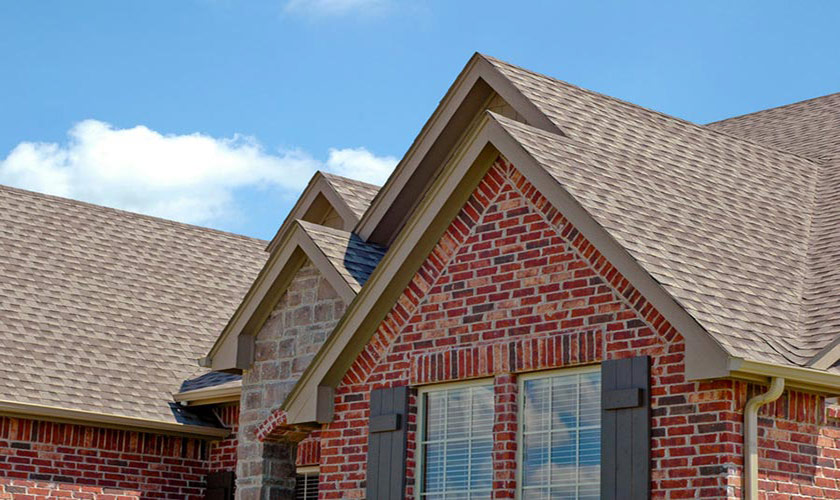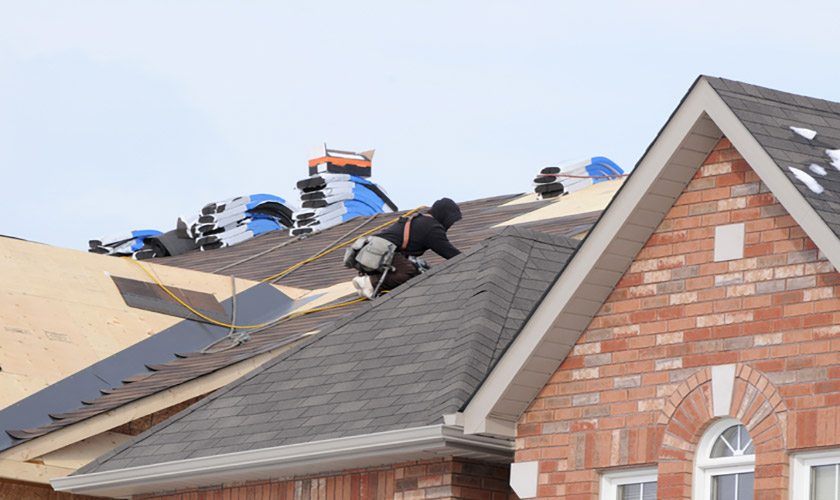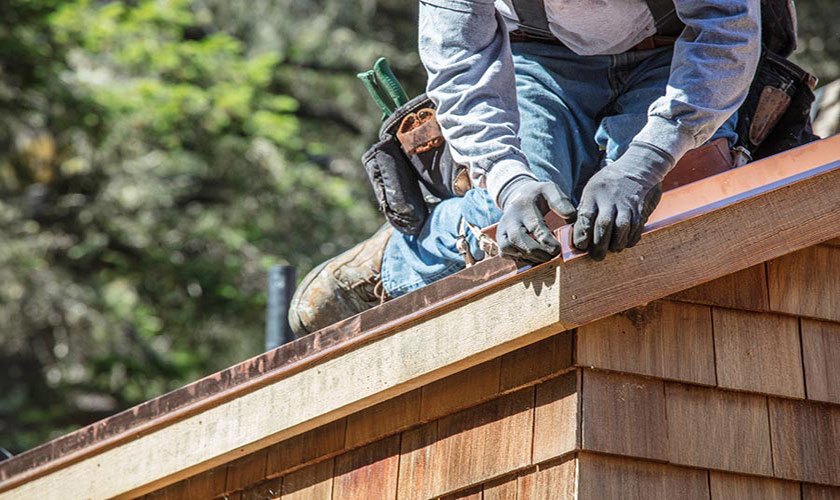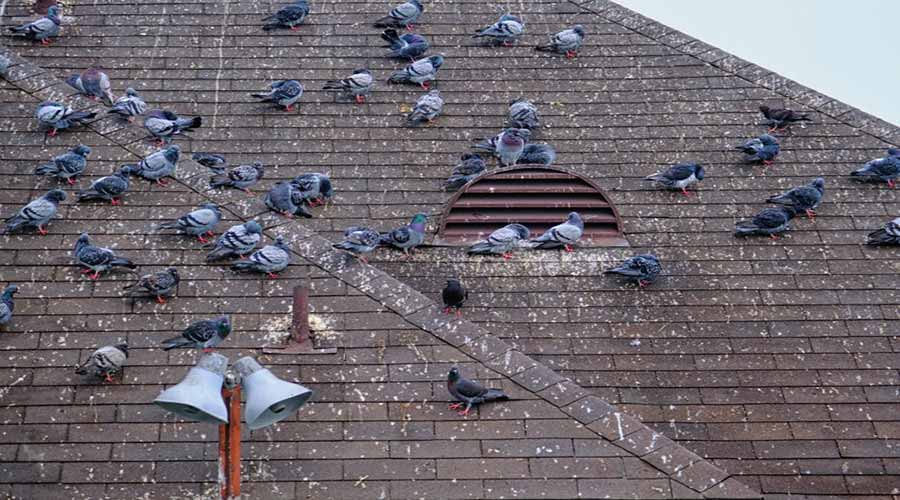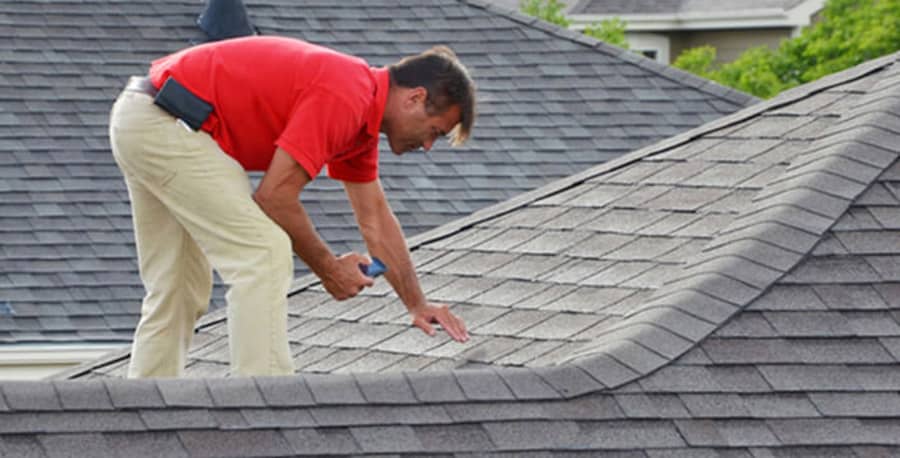
A roof certification inspection is a detailed evaluation of a roof’s condition conducted by a certified roof inspector or roofing company. This inspection aims to certify that the roof is free of defects, has undergone necessary repairs, if any, and is expected to last for a specified period, usually between two to five years.
This certification can be a kind of warranty for any repairs or updates made to the roof.
What Does a Roof Certification Inspection Include?
During a roof certification inspection, the inspector will examine various aspects of the roof, including:
- The roofing material and underlayment for damage or defects.
- The overall condition of roof materials, ridges, caps, and drip edges.
- The quality of drains, downspouts, and gutters.
- The mounting of any HVAC units and the condition of pipes, chimneys, vents, and valleys.
- The type of roof, its age, and roof pitch.
Inspectors will evaluate the roof from both the interior and exterior and often provide many photos in their final report.
Minor maintenance may be performed at no additional cost during the inspection, such as setting slipped tiles or sealing flashings.
Do You Need a Roof Certification Inspection?
Whether you need a roof certification inspection can depend on several factors:
- Home Buying or Selling: When buying or selling a home, a roof certification can assure the buyer about the roof’s condition and may be a deciding factor in the sale. It is particularly important since home inspectors do not usually thoroughly inspect the roof.
- Lender Requirements: Many lenders require a roof certification before releasing funds to a buyer. This ensures that the roof is in good condition and will not require immediate repairs or replacement, which can be costly.
- Insurance Purposes: Some insurance companies may require a roof certification to determine a home’s insurability or maintain a current policy, especially after events like hurricanes.
- Peace of Mind: Homeowners may opt for a roof certification for their own peace of mind, knowing that their roof is in good condition and unlikely to cause issues shortly.
A roof certification inspection is more in-depth than a standard roof inspection and provides a certification that the roof is in good condition for a certain period.
It is a valuable document for homeowners, buyers, sellers, lenders, and insurance companies, offering assurance about the roof’s condition and potentially saving significant costs associated with unexpected roof repairs.
A roof should have 2-5 years of useful life remaining and be free of leaks to be certified.
2-Year Roof Certification Explained
A 2-year roof certification is a statement issued by a licensed roofing inspector or roofing company that certifies a roof is in good condition and should not require repairs or replacement for a period of two years under normal conditions.
What Does a 2-Year Roof Certification Involve?
The process typically includes a thorough inspection of the roof by a qualified professional who will assess various aspects such as:
- The age and material of the roof.
- The condition of roofing materials, flashings, and other components.
- The presence of any damage or defects that need repair.
If the roof is found to be in good condition or after any necessary repairs are made, the roofing company will issue the certification. It’s important to note that while a 2-year roof certification provides some assurance about the roof’s condition, it may not cover all potential issues and is not an extensive warranty.
Why Might You Need a 2-Year Roof Certification?
- Real Estate Transactions: It can be a valuable asset in buying or selling a home, providing confidence in the roof’s condition.
- Lender Requirements: Some lenders may require it before approving a mortgage. Federal programs like HUD, FHA, VA, and USDA often require roof certifications.
- Insurance: It may influence insurance coverage, as some insurers might require a certification to determine the insurability of a home.
Cost of a 2-Year Roof Certification
The cost for a roof certification can range from $75 to $200 on average. This fee is for the inspection and the issuance of the certification itself.
Roof Certification for Insurance
A roof certification is a document provided by a licensed roofing inspector or roofing company that verifies the condition of a roof. It is often required by insurance companies to assess the risk and liability before offering coverage for a roofing claim. The certification goes beyond a simple inspection by confirming that the roof is in good condition, free of leaks and cracks, and that no repairs are needed.
Why Insurance Companies Request Roof Certifications
- Risk Assessment: Insurance companies use roof certifications to determine a home’s insurability and assess the risk of future claims.
- Policy Discounts: Homeowners may receive discounts on their insurance premiums if they have a roof certification, as it demonstrates a lower risk of claims.
- Policy Requirements: Some insurers may require a roof certification for new insurance policies or to maintain an existing policy, especially in areas prone to severe weather.
What a Roof Certification Inspection Involves
- Condition Assessment: The inspection will assess the overall condition of the roof, including materials, flashings, and other components.
- Damage Evaluation: Inspectors look for any damage or defects that need repair.
- Life Expectancy: The certification often includes an estimate of the remaining life of the roof, which is important for insurers.
Impact on Insurance
- Coverage Decisions: Insurance companies may decide whether to offer coverage for the roofing system based on the certification.
- Premiums and Claims: A good-quality roof can lead to lower premiums and a smoother claims process.
- Policy Cancellation or Denial: If a roof fails to meet the insurer’s standards, they may cancel the policy or deny coverage.
What is a Roof Certification?
A roof inspection determines the roof’s condition and provides you with the roof’s estimated remaining life. Most home inspections do not typically stipulate that a roof inspection be undertaken unless the inspector observes problems that need repair.
Roof inspections are also not a requirement in purchase contracts. However, some states have regulations that include roof certification before resale. Other states will not require you to repair roofs, so you should always check the state and local real estate laws when selling a home.
Lenders and insurance carriers, on the other hand, may still require a roof certification to meet HUD guidelines or obtain a homeowners insurance policy.
A roof certification is not the same as a home inspection. Home inspectors cannot conduct roof certifications without the necessary training certification.
NACHI or ASHI-certified home inspectors must inspect the roof from the ground level and document their observations. However, most home inspectors will walk the roof to check it as long as it’s safe. However, a home inspector has to undergo additional training certifications to issue roof certification reports.
During a roof certification process, some of the critical issues that roof inspectors look for are the overall condition of the roof, loose roofing materials, condition of flashings, etc. For example, in asphalt shingle roofs, the overall condition is impacted mainly by the remaining roof granules, which protect the shingles from direct sunlight.
If your roof does not require any repairs, the roof inspectors will estimate the roof’s remaining life in a roofer inspector report. A good certification should have an estimated roof life of two to five years. If the roof requires repairs, the certification is only provided once the repairs have been made. The HUD minimum standard is two years.
Why are Roof Certifications Done?
Roof certifications are meant to:
- Provide information to lenders and buyers about the actual condition of the roof
- Provide an estimate of the remaining life of the roof
- Highlight possible repairs to the roof
Most realtors will require you to provide a roof certification to potential buyers so they can ascertain its condition. When the seller is unwilling to give the certification, the buyer might opt to pay for the certification and make the necessary repairs as part of a contingency of the sale contract.
When a buyer is confronted with choosing two houses, the seller who provides a roof certification appears more credible than the one who doesn’t.
Since there is a lot of fluctuation in the real estate market, understanding the current market trends will help you, as the seller, understand just how important it is to have the roof certified. This way, you can prioritize this process and a home inspection before putting up your home for sale.
Remember, in most cases, the lender will ask for a roof certification before closing. Unfortunately, many sellers wait until closer to completion to provide this certification. The risk here is that it could halt the sale of the house if a roof condition that requires repair is discovered.
Who Needs a Roof Certification?
The question of who needs roof certification depends on the people that the real estate market favors at the time. For example, a seller’s market occurs when the supply of available homes reduces, increasing property prices.
On the other hand, a buyer’s market is characterized by many homes available, leading to a decline in prices. If you are selling your home, consider the purchasing trend regarding roofing certification and the local council regulations.
When there is a high demand for homes, a roof certification is less likely to be a priority for many buyers since they are desperate for a home. Higher home demand forces buyers to accept a home requiring many roof repairs.
When many homes are for sale, roof certifications are critical to the sale contract. Therefore, your real estate agent should advise you on the current market trends when selling your home.
Many buyers and sellers will pass on a roof inspection unless the lender requires it or the home inspector observes severe concerns with the roof.
Factors Influencing Root Certifications
Some of the critical factors that roof inspectors consider when assessing the condition of your roof are the type of roof, age, previous repairs, layers, and pitch. Most roofs are made from composition shingles, clay or concrete tile, wood shake, slate, metal or steel, synthetic material, tar, and gravel.
Roofing experts think that roofs made from wood shake require more repairs, especially if they are ten years or older. On the other hand, tile roofs can last up to 50 years as long as there are no broken or cracked tiles.
Roofs made from composition shingles can last between 15 and 40 years, depending on the quality of the shingle used.
Although it is not an absolute requirement, roof inspectors will not certify a roof if the seller is unwilling to disclose past repairs. Inspectors always look to determine if previous repairs were done correctly and will not subject the new owner to future problems.
Possible compensation can result from damage to the roof that has already been certified. The company only takes liability for issues resulting from faults on its part, meaning that the roofing companies do not compensate for roof damage due to natural disasters and severe weather. Still, instead, they are covered under the homeowner’s insurance policy.
Key Takeaways
When considering roof certification in home sales, the goal is to ascertain the current condition of the roof and its estimated life span.
You need to understand that the certification is you should treat neither a warranty nor a guarantee hence as such. Ideally, roof certification is an expert opinion on the roof’s current condition to help the involved parties, such as lenders and buyers, make an informed decision.
There is no denying that roof certification is a crucial process in home transactions, so buyers should always make it a requirement in home transactions. But, at the same time, sellers should readily provide the certification.


